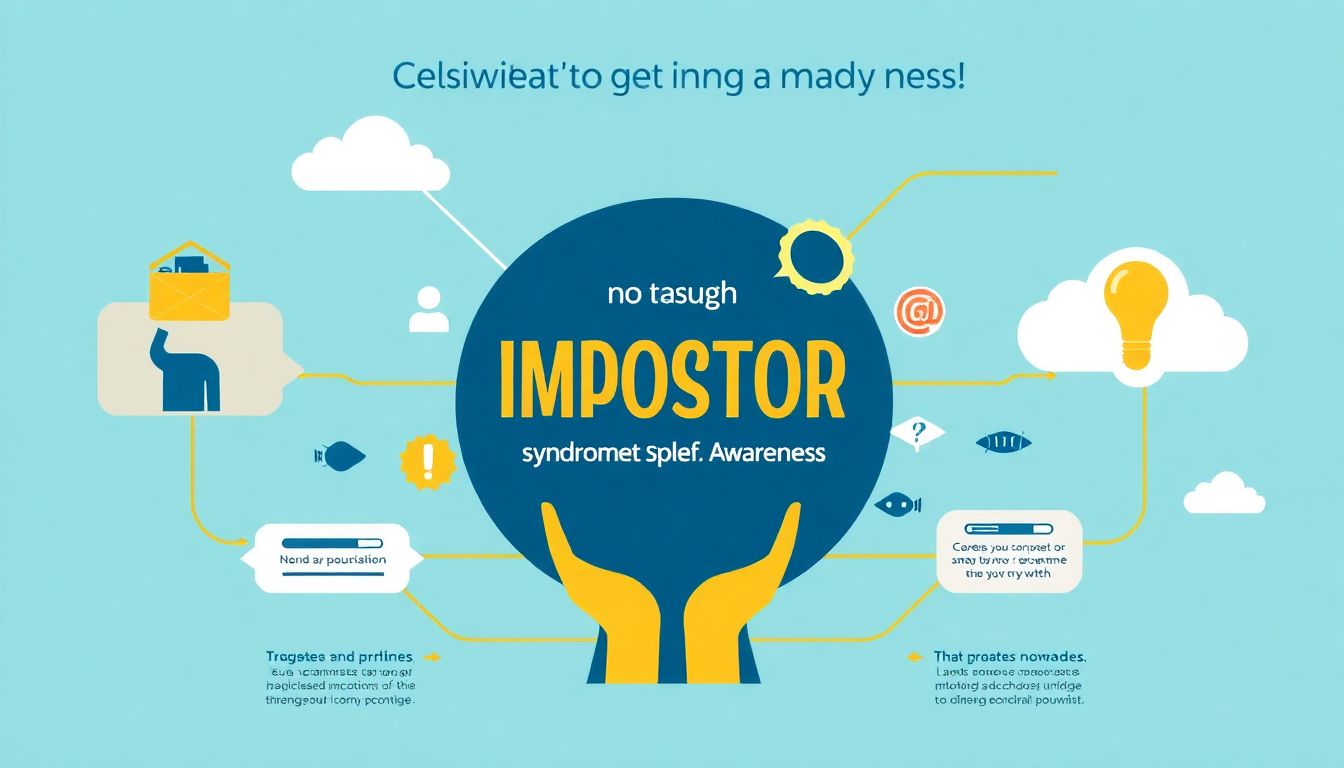Impostor syndrome is more common than you think. It shows up quietly in thoughts like “I’m not really qualified for this,” “They’ll realize I have no idea what I’m doing,” or “I just got lucky.” It affects professionals at every level—from interns to CEOs.
The good news? Impostor syndrome doesn’t mean something is wrong with you. In fact, it often appears when you’re growing. And with the right mindset and self-awareness practices, you can learn to navigate it instead of letting it define you.
Let’s explore how to manage impostor syndrome in a way that helps—not hinders—your personal and professional growth.
What Is Impostor Syndrome?
Impostor syndrome is the internal experience of believing you’re not as competent, intelligent, or qualified as others perceive you to be—despite evidence of your success.
It can show up as:
- Chronic self-doubt, even when you perform well
- Attributing achievements to luck or timing
- Fear of being “found out” as a fraud
- Downplaying your experience or accomplishments
- Comparing yourself constantly to others
Impostor syndrome doesn’t reflect reality—it reflects perception. And self-awareness is key to separating the two.
Why Self-Awareness Helps
Self-awareness is the ability to observe your thoughts, emotions, and behaviors with honesty and curiosity. It helps you notice when impostor feelings are showing up and shift your response intentionally.
Instead of believing every negative thought, you learn to witness it. You create space between the emotion and your identity. That space is where growth happens.
Step 1: Notice the Thought Patterns
Start by catching your internal dialogue. When you feel anxious or insecure, ask:
- What am I telling myself right now?
- Is this thought based on facts or fear?
- Would I say this to someone I respect?
Awareness doesn’t mean the voice disappears. But once you recognize it, you’re no longer controlled by it.
Step 2: Collect the Evidence
Impostor syndrome thrives on selective memory—it focuses only on what you haven’t done. So flip the script. Make a “confidence file” where you record:
- Positive feedback from peers, clients, or managers
- Projects you’ve led or contributed to successfully
- Challenges you’ve overcome
- Skills you’ve developed over time
Review this file when doubt creeps in. Let facts ground you when feelings try to shake you.
Step 3: Name the Trigger
Impostor feelings usually don’t appear out of nowhere. They’re often triggered by:
- Entering a new role or level of responsibility
- Being surrounded by high-achieving peers
- Receiving praise or recognition
- Facing high expectations (especially self-imposed)
Once you identify your common triggers, you can approach those moments with more self-awareness and less self-judgment.
Step 4: Reframe the Experience
Feeling like an impostor doesn’t mean you are one—it means you’re in a moment of stretch and growth.
Try reframing:
- “I don’t know everything” → “I’m learning and growing.”
- “I feel nervous” → “This matters to me.”
- “I’m not perfect” → “I’m human—and still capable.”
Reframing helps you move from fear to curiosity.
Step 5: Talk About It
Impostor syndrome thrives in silence. But the moment you share how you feel, you realize how common it is.
Talk to a mentor, colleague, or friend you trust. Chances are, they’ve felt it too—and their perspective can normalize what you’re going through.
Sometimes just hearing “Me too” is enough to shift your mindset.
Step 6: Set Healthy, Realistic Standards
If your bar for success is perfection, you’ll always feel like you’re falling short. Self-awareness helps you challenge unrealistic expectations and define success in a more balanced way.
Ask:
- What’s actually expected of me in this situation?
- Am I measuring myself against someone else’s path?
- What would “good enough” look like here?
Perfection isn’t the goal—progress is.
Step 7: Practice Self-Compassion
You can’t beat impostor syndrome by being harder on yourself. But you can ease its grip with compassion.
Try saying:
- “It’s okay to feel this way—this means I care.”
- “I’ve done hard things before, and I can do this too.”
- “This discomfort is part of stepping into my next level.”
Self-compassion turns fear into fuel. It reminds you that growth and doubt can coexist.
You Can Feel Like an Impostor—and Still Show Up
Impostor syndrome might not disappear overnight. But you don’t need it to. What you do need is the ability to recognize it, understand it, and keep going anyway.
Self-awareness gives you the power to respond differently—to act from your values and truth, not your fears. That’s what makes you resilient. That’s what keeps you moving forward.
You belong. You’re capable. You’re growing. And you’re not alone.
